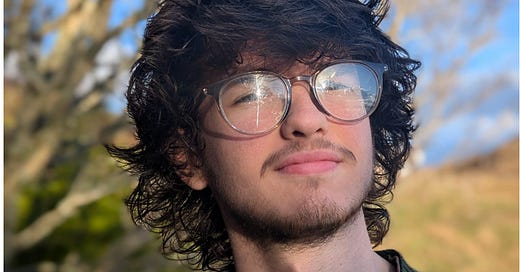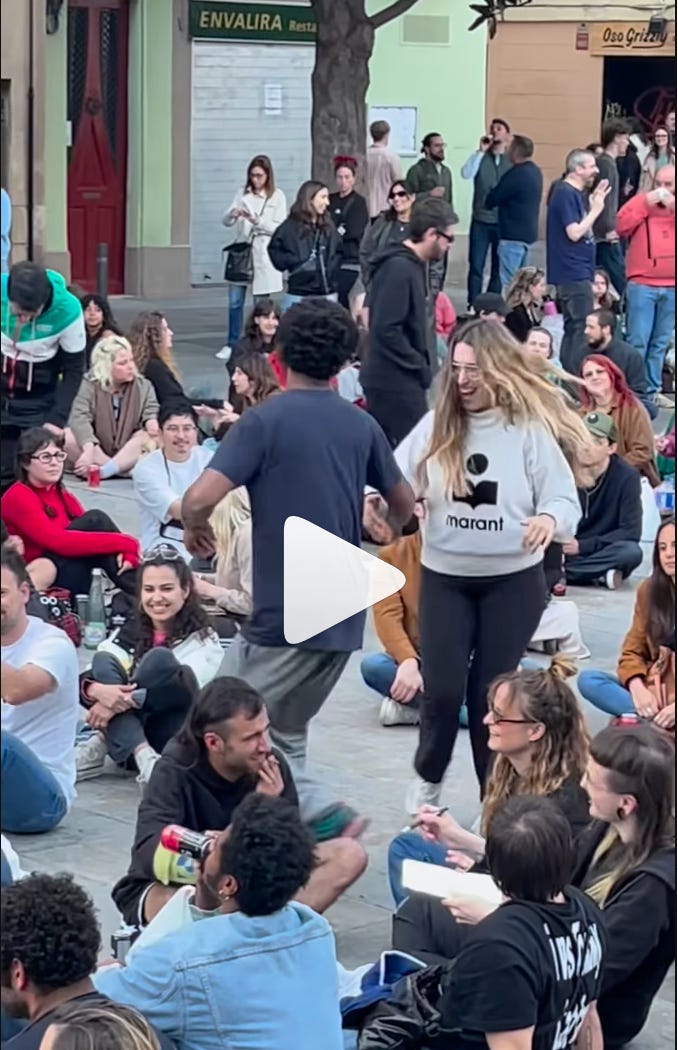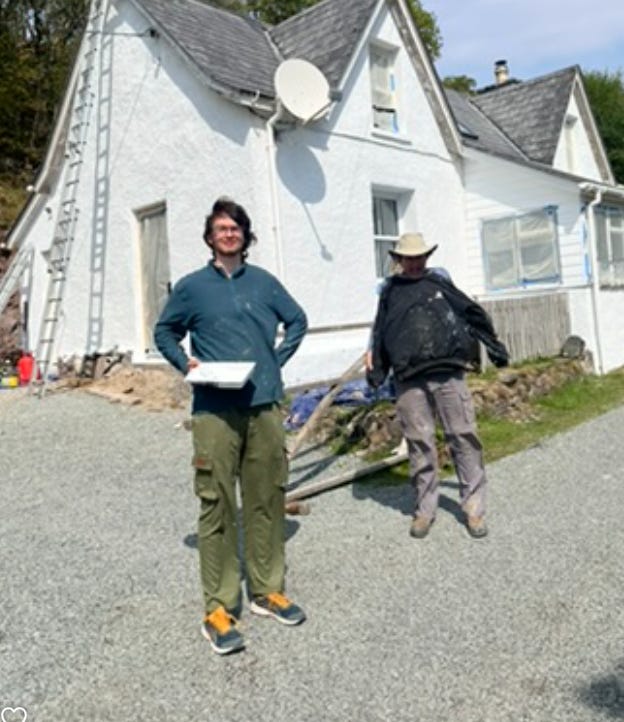I saw videos online of the Spanish power cut. People were flooding the streets with music and laughter, parks were full of picnic blankets, kids running around, people using walkie-talkies. I felt FOMO - fear of missing out.
I grew up online
I grew up online. My peers and I pretty much had to. If we wanted to connect, we did so through screens. For a few of my teenage years, I tried to reject technology, to go without a phone or social media. But ultimately it failed.
Nobody was outside!
My friends didn't want to wander around aimlessly or play cards in the park. They were having fun together by shooting zombies & building Minecraft worlds. Outdoor activities couldn’t compete with the dopamine treasures of the internet. If I wanted to connect to people my age, I had to be online.
And even when we did manage to leave the house, it wasn’t exactly liberating. Our parents were always hovering—“When will you be back?”, “What are you doing?”, “Who are you with?”. On paper, just innocent questions. But for a teenager trying to carve their way in the world, those constant check-ins chip away at your sense of freedom.
I’m told that our parents were raised to “Go outside and play!”, but we got the opposite.
I remember going into town after school with a friend, only for her mom to keep calling, making sure she hadn’t been kidnapped. At one point, I remember her mom saying: “It’ll be dark in two and a half hours - you better head back!”. We were fifteen.
Ironically, when I tried to ditch my phone as a teenager, it was the adults in my life who resisted the idea. My family wanted to be able to reach me instantly, and my school insisted I download their homework app - which, of course, buzzed nonstop with reminders I had no intention of reading.
I did enjoy playing computer games.
My experience was never really about the games themselves, it was the connection - the bond formed while navigating chaotic firefights or carefully building virtual worlds together. There was joy in the teamwork, in the shared challenges and victories. That kind of closeness, that feeling of being seen and understood, wasn’t something I could find just by stepping outside. Not in the world I grew up in.
Alone, I’d fall for all the tricks
But when you start gaming you can get sucked into gaming addiction. This happened to me when my circle of friends, for whatever reason, fell apart. Now, playing alone, it’s about the game.
Then, I’d fall for all the tricks inserted to monetize the experience. You feel the need to replace the joy of camaraderie with something else, such as opening gambling-style loot boxes, or paying for some fancy cosmetics for your in-game character. (Luckily my gaming addiction didn’t last too long, and in fact, I learned some useful skills.)
Suddenly, going outside wasn’t just discouraged - it was banned.
Then COVID hit. Suddenly, going outside wasn’t just discouraged - it was banned. Our already screen-based lives became completely virtual. It was the final push towards digital, and this time, there was no resisting it. But in a way, that was better - everyone was online all the time, so I had instant access to all my friends.
I set up an online server where my friends and I would hang out. I would wake up smiling, excited to hop on a call where my buddies were already waiting for me; “Luca! Good morning! We’re watching a documentary, join the party!”. It was so nice to all be in the same place, it didn’t matter that it was online, it felt like real connection.
Let’s get lost
After Covid, though, I had had enough of the online world. I dropped out of high school and instead of going to Uni, I hit the road. I volunteered near the frontlines in Ukraine, hitchhiked across Europe, spent half a year in Southeast Asia and the other half in Japan.
I want to immerse myself in the offline world. My entire 6 months in Japan were spent with no mobile data, it was amazing. But the downside is that I feel like I am always the one saying to my friends: ’Let’s not get tips on Tik Tok for where to eat or map our route on Google’ - and they reply ‘But why, Luca?”
It’s because I recently made an important, yet obvious, observation. We do not experience either the phone or the physical world - instead we experience the world through our phones. Simply finding a place to eat used to require exploring, getting lost, taking the long route and maybe asking a stranger for directions. Now it’s experienced through Google maps, looking at the menu beforehand, checking reviews and having optimised navigation with perfect instructions. We are always being told to prioritise outcomes - as a society, have we forgotten how to enjoy the journey?
In 2020, during lockdown, we couldn’t go outside. In Spain, in 2025, all the screens went dark. It seemed the streets came alive and people were dancing and laughing. No electricity, no internet - no scrolling, no distractions. I would like to experience what that’s like - maybe just for a day.
Luca and his dad Rupert are travelling the Highlands this summer, doing painting and decorating and other work while camping - they are available for handyman-type jobs - with a bit of philosophical discussion thrown in. Email Rupert on wolfemurray@gmail.com.






Luca seems like a young man with his head and heart both in the right places and tuned to connecting with people and experiences. All the best to him. If he comes by Arbuthnott I’ve a fence for him to paint.
This was really cool. It really made me think about how I operate in the world. I also grew up with the internet as an omnipresent force in my life, but I’ve ended up relying on it much more than Luca. I’ve never had an extended break and I’m always the one to get google maps out to look for places to eat. My friends are the ones arguing we should get lost in Paris or wherever we are.
Maybe I’ll have an extended break. Go travelling without my phone. That could be cool. Might also take a break from google maps, but it’ll be hard. I think my sense of direction is fully digitalised.
Anyways. Interesting. Thanks!